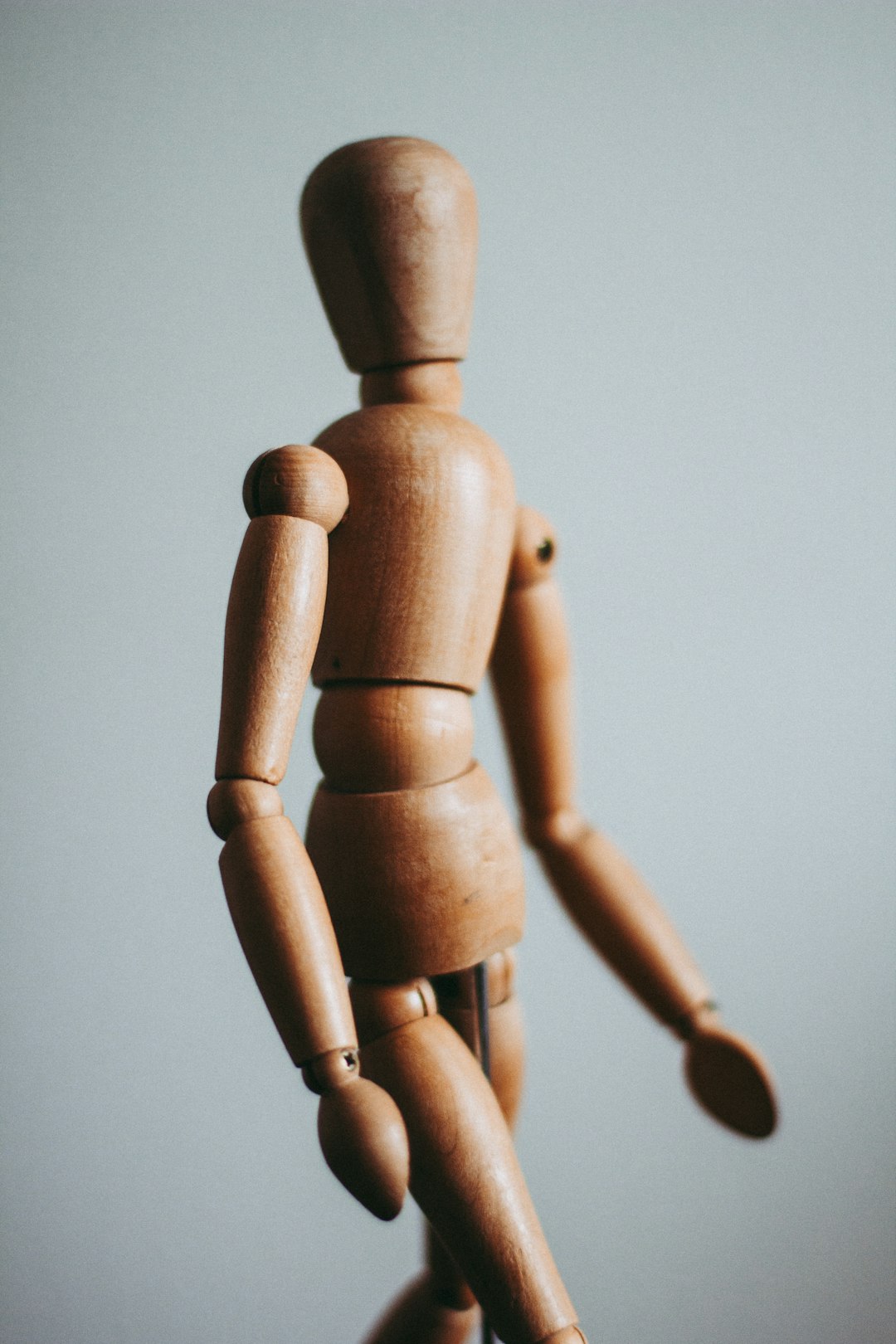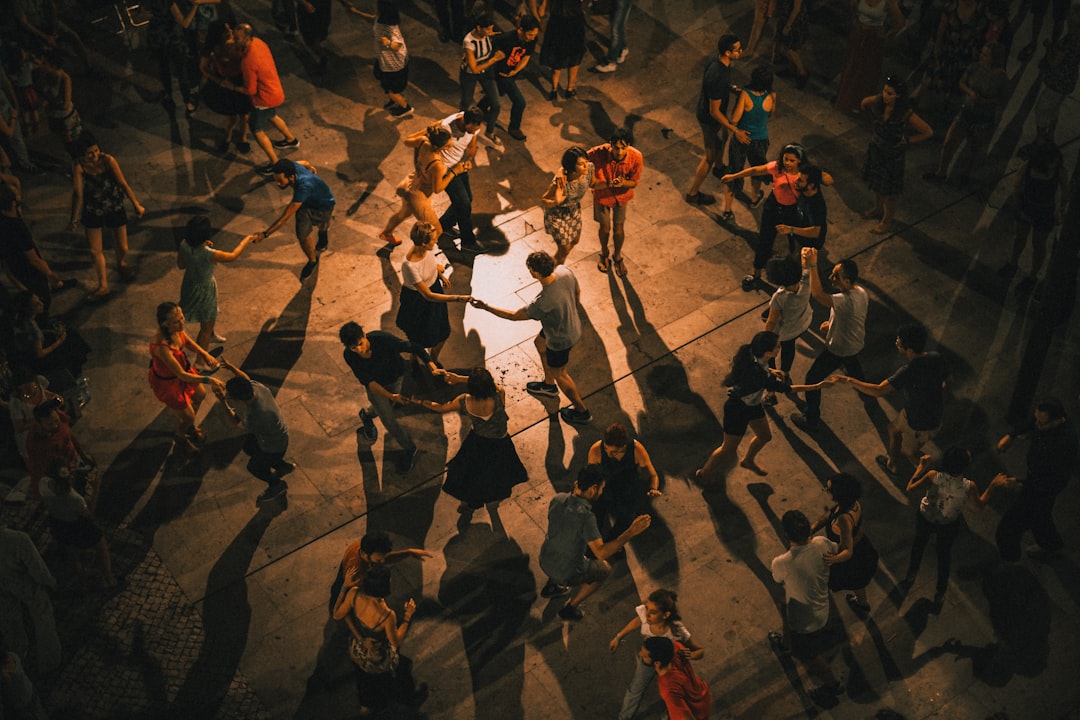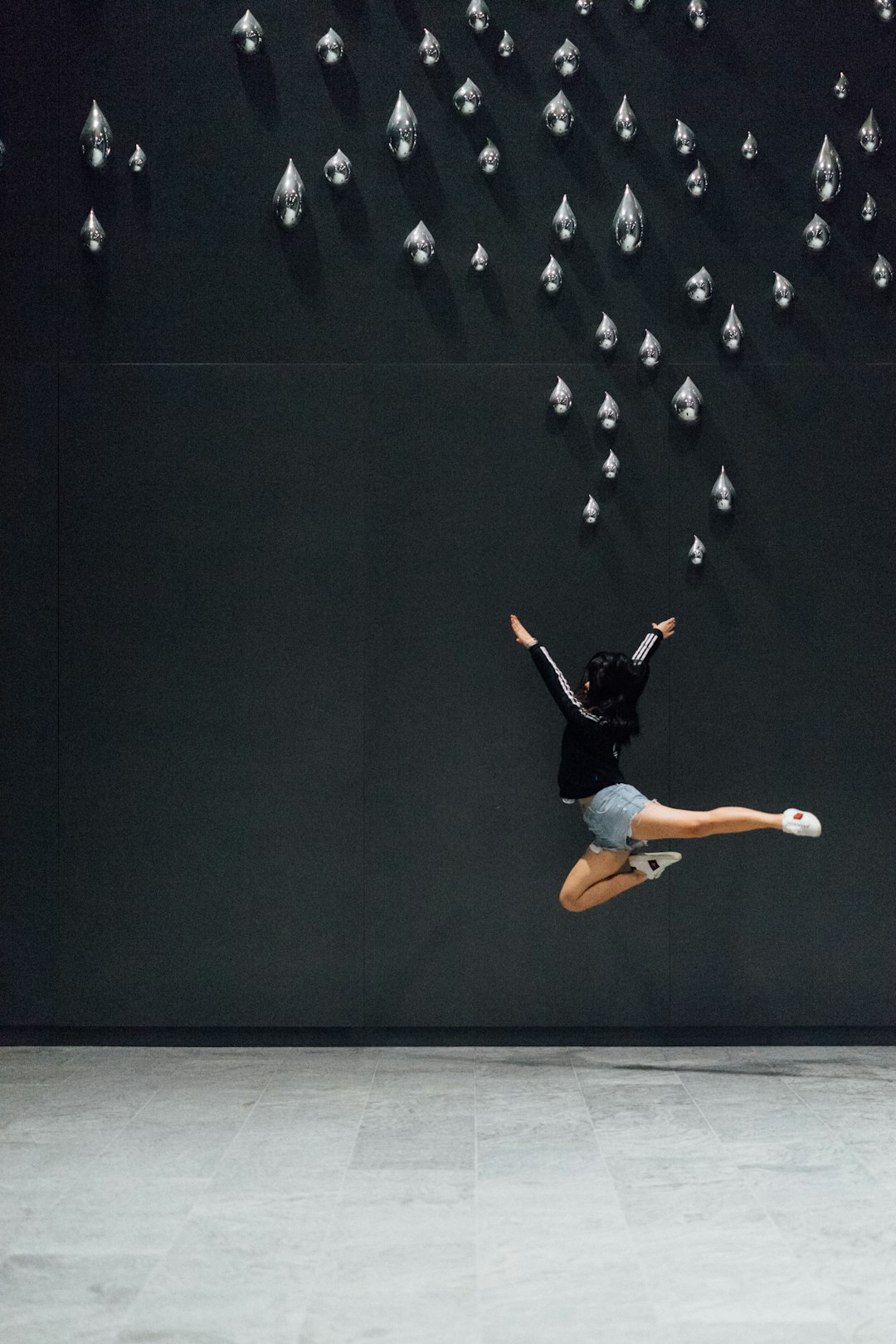Less policing, more dancing
Why do we get so embarrassed about dancing? A seemingly fleeting thing that happened to me when I was younger haunts me more than I thought it would…
Before starting Recalculating, when I was mulling over what I would write to you all about — I had made a very long list — I thought it would be interesting to reflect on certain insecurities and fears that we men hide.
More than anything else, it was about what makes us question and pay attention to the essence of what it is to be a man (and not a woman). This idea functions kind of like a tireless whisper in us.
I won’t generalize, but instead I am going to share some of the situations I’ve personally been in, connected to something I have been reading — let’s see where we get to.
Feeling like less of a man
When I was starting Recalculating, I wasn’t sure about sharing it with Ale, a great friend of mine from Latin America who has a lot of experience working in the media there and in Europe.
It was an important project for me, and he could probably even contribute professionally. So why wasn’t I sure whether to tell him about it or not? As I write that now I feel a little ashamed: my own prejudices (and fears) meant that I thought he might laugh at me.
Some things are unmovable about us: take the fact that I wasn’t taking myself seriously and was lacking confidence, for example. But also, one of the things about Ale’s style is that he pokes fun at everything and it can sometimes feel a little like a good-natured ribbing. It’s something that we guys often do between us (one of the many ways we tend to naturalize the way we discipline each other). Well, those are (were) my thoughts.
Ale surprised me. His reaction was not only far from my fears — but he was actually interested in this project from the very start (and stood by me). Perhaps, he told me, this was because of how much he was affected by the issue of a man’s worth in general.
He told me: “For a long time I felt like less of a man because of how badly I played soccer, or even because of the fact that I did not know very much about it. I am convinced that there is huge potential in your newsletter. One challenge would be finding out what the hidden roots of toxic masculinity are in those less obvious but widely accepted habits.”
Months after this conversation, I discovered a new concept — gender policing — which I had experienced on more than one occasion. I was again struck by how much of a relief, but also how powerful it is, to find the words for something that happens to us.
And this brought back to me a scene from my adolescence that I had never really analyzed, let alone understood the scale to which it had influenced me.

That’s not how you boogie!
I was 12 or 13 when I went out dancing for the first time at a nightclub in the north of Buenos Aires. I was young and innocent, and lacked physical grace. I dared to take a few steps in the shifting sands of that first night out on the dancefloor, where a gaggle of teenagers were looking for affirmation.
There was an immediate and almost coordinated response from the locals at the nightclub around me: the friends I had gone out with, with whom I was now standing in a little circle on the dancefloor, loudly scoffed.
They came out of their stillness (since they weren’t dancing) and imitated my evident lack of coordination, mocking my stiff moves. They laughed, complicit, at me. Embarrassed, I stopped dancing. I felt like I was a teenager who was doing something wrong, risking my permanence on a stage where I had barely arrived.
None of us danced at all that evening. I suppose my friends had quenched some of the nerves we had brought in on our high with us. For me, it had been a far from liberating night.
While being the butt of the joke hurt, I didn’t feel it was unfair. I didn’t even take it too personally. In the end, these people remained my friends after that night. And I had never really talked about it or given it much thought until now, almost three decades later.
It was, like in so many other cases, a set of behaviors that worked like a compass for us: it was about acting in a way which we didn’t quite know how to define, but which promised that we’d be better than others — that tacitly including a trophy wife, or a well-paid job, at the end of the road.
In pursuit of an indeterminate but recognisable beacon, the group dynamic worked to discipline us individually: we generated complicity by stepping on each other’s toes, a certain confidence within us grew, and we established a hierarchy.
It was much later that I understood that what my friends did in a seemingly innocuous moment on the dancefloor was to gain confidence and security in an environment where we all felt observed.
In the end, it was one of the many hyper-heterosexualised spaces where we had to impose ourselves in order to become men: to drink more, to meet more girls, to get laid, and even to fight with other guys (and all the more welcome if the fight was “for” a woman).
Consensus and invisibility
That night, strictly speaking, that time, it was my turn (and I was never one of the worst off in these situations). But it was something that happened all the time — just as Ale felt had happened to him when it came to knowing everything about football, and much as it happened to many others in different situations.
Even if physical violence is latent and omnipresent, it is not always a necessary tool for us to be socially disciplined as men. In fact, it is more efficient this way, because there is a consensus, a fact which is accepted: in a group, the majority laughs at and has fun at the expense of the minority, who will stop doing whatever it is that generates the mocking, so as not to be left out or lose their place in the hierarchy. And that same person is a victim one day, and a victimiser the next.
Among other things, it was assumed that the one who prevailed in that round — who symbolically became stronger there — would then be the one who would have more of a chance with the women. And women — this is also true — tend to pay more attention to those who have moved higher up in the hierarchy (a man who is stronger, more confident, more handsome, etc).
It was a horrid trap which fed back into itself: we acted in a way that was supposed to bring us “success”. Seeing that this behavior was rewarded in others, or in ourselves, we believed that it was expected and the right thing to do.
It works like this: “A” believes that he has to beat “B”, because that will make him more “poronga” (think “dick-measuring competition”). This is how he will increase the chances that “C” would be interested in him, which happens. “A” and “B” are increasingly convinced that this is the only way it can be.
“A”, “B” and “C” come from different places and have different responsibilities. They end up perpetuating a dynamic that in the end serves very few of them (and even then it doesn’t serve them much, but we find that out later, hopefully). It’s about violent demonstrations that were, at least at the time, accepted as gospel. In other words, by enjoying consensus, they are rendered invisible.
So what happened?
In Beyond Patriarchy: Essays by Men on Pleasure, Power, and Change, Canadian writer Michael Kaufman writes about childhood in a large period of impotence: “The intense love for one or two parents is combined with intense feelings of deprivation and frustration.”
I would say that this is also quite similar to adolescence, where an ever-expanding web of relationships and a succinct set of doubts are added to the landscape, forming a combination that easily overwhelms and confuses us. If anything, we don’t want to be left out (of anything), so we’re likely to do whatever it takes to fit in, to anesthetize ourselves — and/or we’ll look for ways to circumvent that pain.
The thing is that after that scene on the dancefloor when I was mocked for my first ever moves, I went numb. I stopped dancing — for years. In the distribution of natural talents, I was not blessed with the same gift as the Argentine ballet dancer Julio Bocca. But it is also true that we don’t need to have talent to do something that’s good for us — right?
As I grew up, I went through various stages of never dancing or having to be, at the very least, drunk enough to dance (not very original…).
The paradoxical thing was that I won my now wife Irene over by dancing, although I was rusty and without any discernible talent. (I now dance a little more, although it doesn’t come easily to me.)
This is how it went. We all met in Chile. Strictly speaking, the four of us (three guys, and Irene) were just getting to know each other, which afforded me a certain impunity of anonymity. In my eagerness to please her, I tried to hide my embarrassment — and I danced.
I knew then that I was making a bit of a fool of myself, but it did the trick. Here we are, more than ten years later: married, with two children, living in Greece.
Even today, I still feel a little embarrassed when I dance at home alone. Even when I clown around in front of Irene and my children, to play with them but also have fun, it happens: there is a second when I feel a sense of that bolt of shame from when I was younger. What if they are watching me? But who’s going to see me, and what does it matter?
I think, too, of the “embarrassment” we sometimes feel second-hand, for those who do things that we would not dare to do ourselves. I suppose my friends have often felt this sensation for me over the last few years, when they have seen me dancing with Irene, who I married in 2015.
A few weeks after our wedding in Argentina, I was surprised by a message from someone who, although I was fond of him, I had only met a few times — a friend of a friend who we had shared a few asados (Argentinian barbecue) with.
Diego wrote me this:
“I remembered that I wanted to email you. Actually, until today, I was never going to send it, because I hadn’t even composed it. But it was an idea that stuck with me after that night in a bar in San Isidro. I remember I was struck by the great bond you and your new wife had. I saw you, happy (not that that’s a huge achievement, since every couple has their fleeting moments of happiness). What I mean is, I saw you above all, dancing, but really as if you were playing as happy as children. You made a dance move in which you passed underneath Irene, as if water, elastic — a move that was a bit ridiculous but which you did with impunity: what the fuck do I care about humanity if I’m dancing and being with the woman I love? It was very nice to see you. There was something just absolutely real between the two of you.”
I do not know why I never replied to this message.
Recently I started reading fellow Argentine journalist Imanol Subiela Salvo’s newsletter, who had written something about dance: “You just have to know how to give yourself — or want to give yourself — in order to enjoy yourself.”
“At school,” continued Imanol, “they told me that I danced well because I was gay. For several years I believed that to dance well was a sine qua non condition of being a ‘trolo’ (queer). However, when I arrived in Buenos Aires, and found a lot of other gay men dancing, I realized that not all of them danced well. Many did, but many didn’t. I also don’t know exactly what it means to dance well and what it would be to dance badly. I guess it has to do with the rhythm of the body.”

Gender policing
To come back to the idea of the gender police, it is about controlling the gaze of other men that is so strong that you don’t even need another man to be physically present for you to feel the pressure.
In his essay Masculinity as Homophobia: Fear, Shame, and Silence in the Construction of Gender Identity, the sociologist Michael Kimmel writes:
“To admit weakness, to admit frailty or fragility, is to be seen as a wimp, a sissy, not a real man. But seen by whom? Other men: we are under the constant careful scrutiny of other men. [...] As adolescents, we learn that our peers are a kind of gender police, constantly threatening to unmask us as feminine, as sissies.”
In the same essay, Kimmel defines masculinity as a set of ever-changing meanings, which we construct through our relationships with ourselves, with others and with our world. And he reflects:
“Manhood is neither static nor timeless; it is historical. Manhood is not the manifestation of an inner essence; it is socially constructed. Manhood does not bubble up to consciousness from our biological makeup; it is created in culture. Manhood means different things at different times to different people. We come to know what it means to be a man in our culture by setting our definitions in opposition to a set of ‘others’ — racial minorities, sexual minorities, and, above all, women.”
We could say that, at least in heterosexual childhood and adolescence, one learns to be recognised and watched by others. We seek the recognition of other men. In this mission, women can become a bargaining chip to getting ever greater recognition (“nice piece of ass you pulled”, and its variants).
At a certain moment, it is not even necessary for the other person to be present in the moment, for us to be weighed down by their gaze — because that gaze has already been internalized. That’s why, when I play music at home and dance, that fleeting feeling of shame still comes up, even when I’m alone. Because the other self, Kimmel’s “gender police”, examines us relentlessly.
There we have it.
Many thanks to all of you who, as always, read, comment, send me emails and share this newsletter with others.
I’ll see you in two weeks, when we’ll be back to business.
Stay well,
A hug,
Nacho
…
🙏 Many thanks to Worldcrunch for translating and editing this newsletter.


